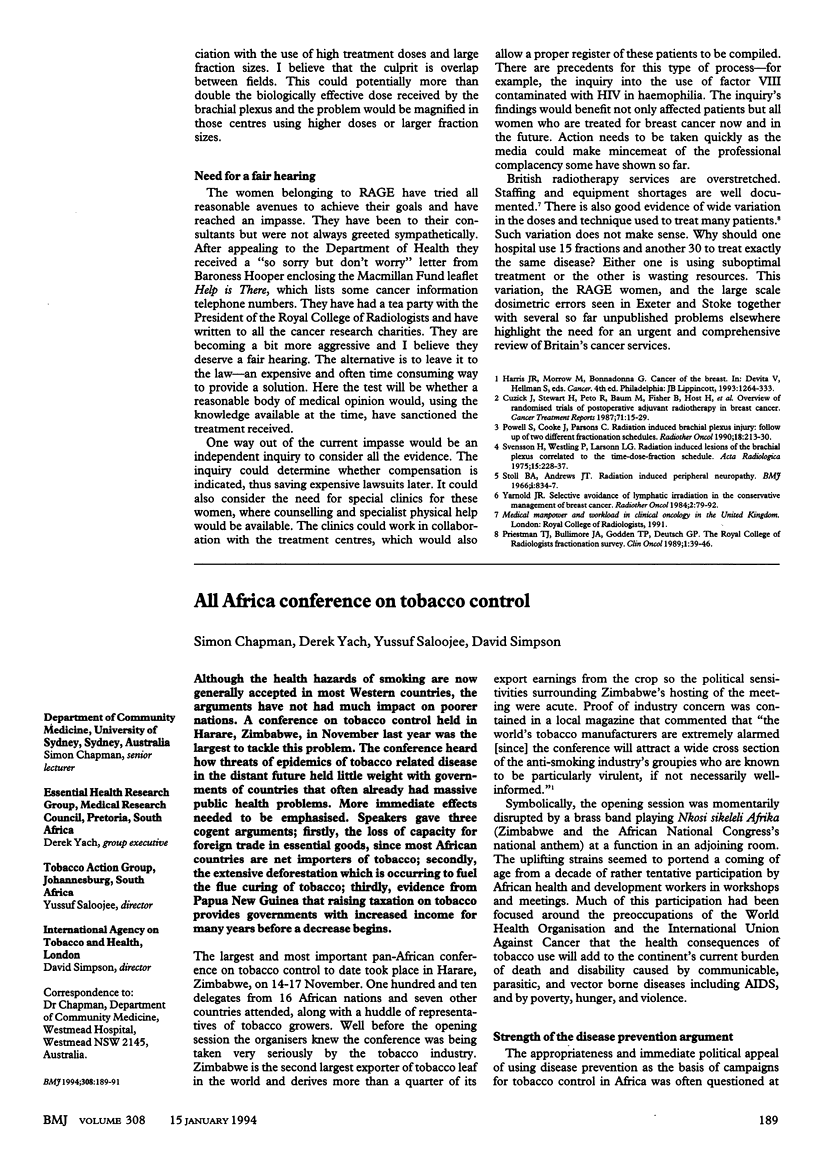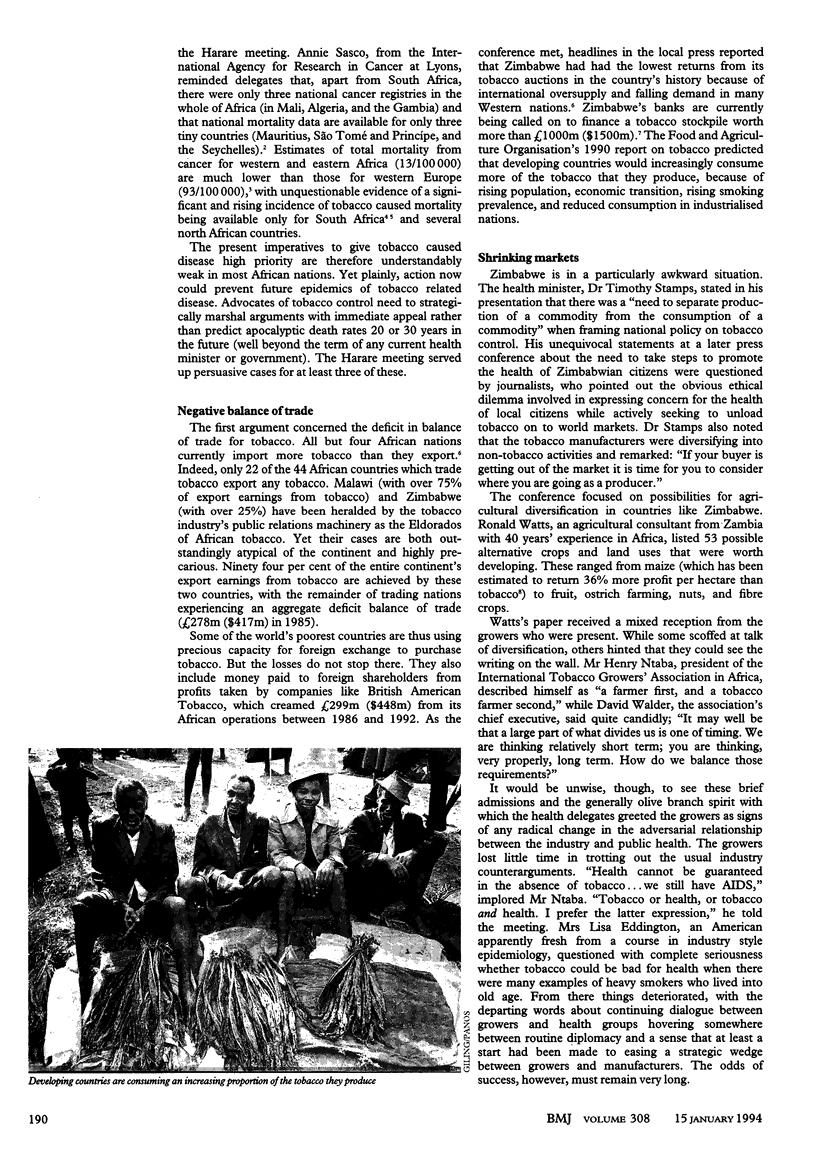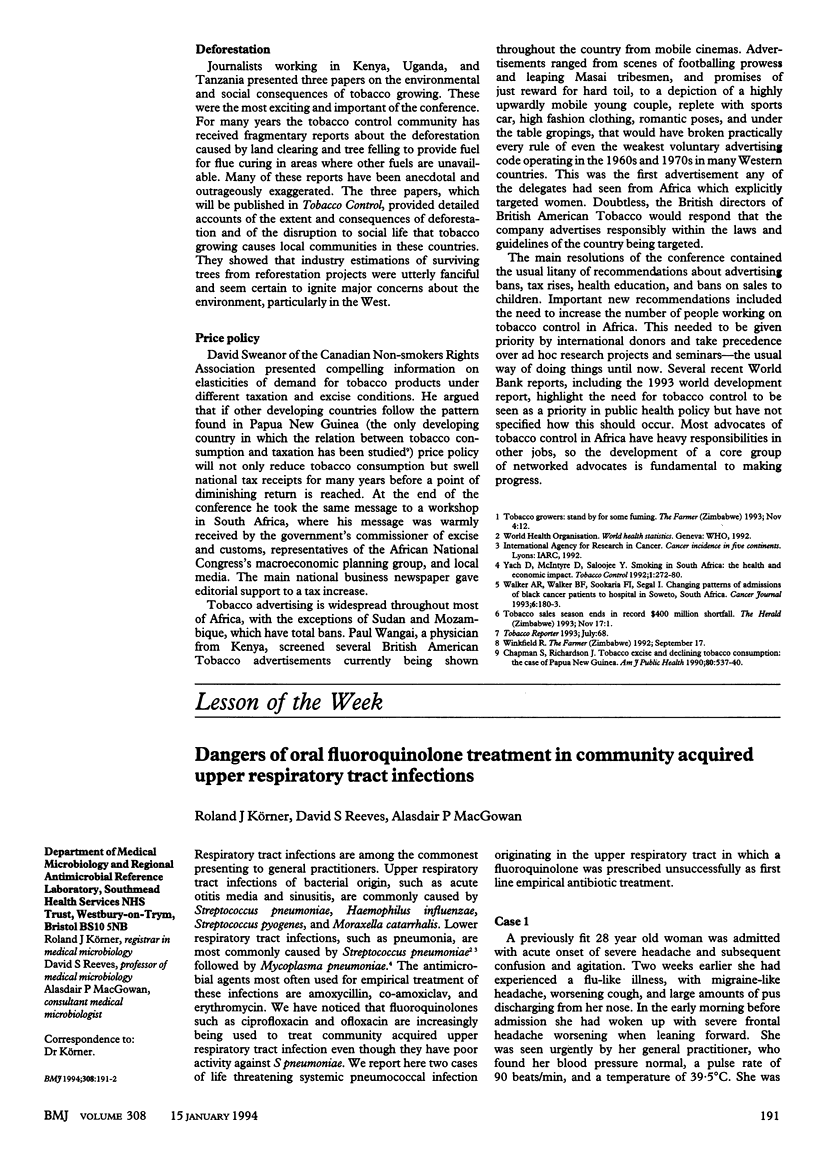Abstract
Although the health hazards of smoking are now generally accepted in most Western countries, the arguments have not had much impact on poorer nations. A conference on tobacco control held in Harare, Zimbabwe, in November last year was the largest to tackle this problem. The conference heard how threats of epidemics of tobacco related disease in the distant future held little weight with governments of countries that often already had massive public health problems. More immediate effects needed to be emphasised. Speakers gave three cogent arguments; firstly, the loss of capacity for foreign trade in essential goods, since most African countries are net importers of tobacco; secondly, the extensive deforestation which is occurring to fuel the flue curing of tobacco; thirdly, evidence from Papua New Guinea that raising taxation on tobacco provides governments with increased income for many years before a decrease begins.
Full text
PDF


Images in this article
Selected References
These references are in PubMed. This may not be the complete list of references from this article.
- Chapman S., Richardson J. Tobacco excise and declining tobacco consumption: the case of Papua New Guinea. Am J Public Health. 1990 May;80(5):537–540. doi: 10.2105/ajph.80.5.537. [DOI] [PMC free article] [PubMed] [Google Scholar]



